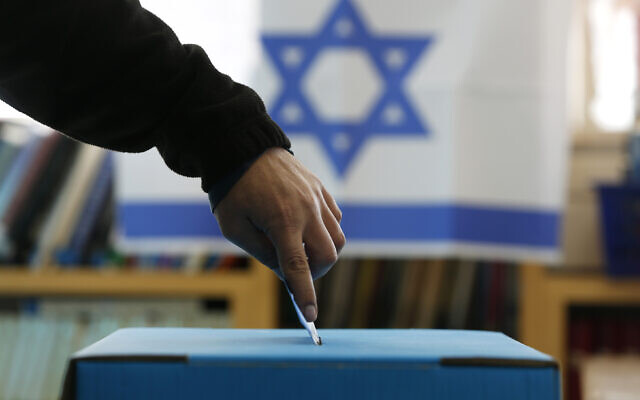We remember the movie Groundhog Day where the hero is condemned each morning, when he wakes up, to live again the same day, being the only one to remember the events of the day before. The Israeli public seems to be today more or less in the same situation. For the fifth time in 3 years, Israelis will have to go back to the polls on November 1st, in order to decide between two blocks the balance of power of which has not fundamentally changed from one election to the next. But while in the movie, the hero improved with each occurrence of the day and finally succeeded in seducing the beautiful heroin, it is obviously not the case in Israel where, according to the polls, neither block—the “pro-Bibi“ or the “anti-Bibi“—seems able to win. The parties in contention have until September 15th to deposit their lists. We may have then a better vision of the upcoming campaign, since the results are sometimes played by a single vote to obtain a majority, the number of lists and their composition will be decisive for each of them to succeed in mobilizing their electors.
This is what will undoubtedly determine the results of that election. The right and the religious parties usually succeed in stocking up on their votes : will the left and centrist parties do the same ? The previous election led to the establishment of a “government of change“ because it took place after a year of mobilization and demonstrations of the “anti-Bibi“ camp which wanted to remove from power a candidate indicted in several corruption and breach of trust cases. A year of operation of this government has had the effect, by pacifying the political debate, of demobilizing this protest movement. Will it succeed in a few weeks, after the traditional truce of Tichri holidays (starting on Rosh Hashana, September 25th, ending with Sim’hat Torah, on October 18th) in finding again the impulse of the previous election ?
The participation rate of Arab electors is the second unknown of that fifth turn. The higher the rate, the less likely Netanyahu will succeed in getting the support of 61 deputees. So far, the polls show a drop in voting intentions of Israeli Arab citizens, of which only 40% would vote. While the outgoing government has done more for the Arab sector than all the previous governments, by significantly increasing the budgets allocated to it, and by fighting the criminality in it, it seems that it won’t be enough to convince that electorate to go voting in a proportion close to that of the Jewish electorate. Of course, on the issue of the occupation and of the future of the relations with Palestinians, this governement is in line with those before. True, it allowed 15000 Palestinians from Gaza to come to work everyday in Israel, and the cooperation between some Palestinian ministries with their Israeli counterparts has been restored. However those actions were part of the will of this government to put in place a better management of the conflict, not to offer a political perspective to Palestinians. And that issue will be, like in previous times, the great absentee of that new electoral campaign ; it explains the lack of interest of the Arab electorate which remains sensitive to the situation of Palestinians in the occupied territories. The worsening security situation in the West Bank these last weeks, which led to the rising number of Palestinians’ arrests in the West Bank, is the consequence of the lack of hope among the Palestinian youth aspiring to the end of occupation.
On August 28th and 29th, 1400 persons and delegates met in Basel in order ro commemorate the 125th anniversary of the first World Zionist Congress. The speeches followed one another to salute the vision of its founder, Theodore Herzl, and the path taken since. But the issues the future country would have to face, which the Viennese journalist had predicted and described in his utopic novel Altneuland (“New old country“), like especially the sharing of the land with the Arabs, or the conciliation of Judaism and secularism, have been carefully avoided, which is happening again in this new electoral campaign. As long as Israel won’t face them and solve them, it won’t have fully accomplished the vision of the Zionist Movement’s founder.
David Chemla






